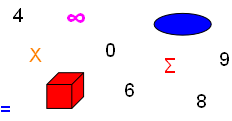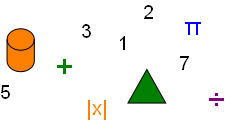



Adding and Subtracting Radicals


Math coefficients of like terms can always be added or subtracted. This also applies to radicals.
Adding Radicals:
3√2 + 5√2 + 2√6 =
(3 + 5)√2 + 2√6 =
8√2 + 2√6
Subtracting Radicals:
3√2 + 2√5 − 6√5 =
3√2 + (2 − 6)√5 =
3√2 − 4√5
3√x + 5√y + 2√6 are three radicals that cannot be added together, each radicand is different.
√xy − √6 cannot be subtracted, different radicands.
√x2 + 2√x We cannot add or subtract the radicands to combine or simplify them, they are different.
Suppose x = 2. Then, 2 + (2) 1.4142 = 4.8284
We can solve the problem if provided a value for “x”.
The above also shows us the difference of solving a problem to provide a quantitative answer or applying mathematical operations to reduce complexity. Math is often to perform operations that simplify or combine terms of expressions, making the expressions easier to understand and work with. After, by replacing variables with numeric quantities or other required values allows for solutions from equations that provide answers with the least effort.
Copyright © DigitMath.com
All Rights Reserved.